What Is Respiratory Syncytial Virus (RSV)
Respiratory Syncytial Virus (RSV) is a common virus that primarily affects the respiratory system.
Most individuals experience mild, cold-like symptoms from it. It can lead to more severe respiratory issues in infants, young children, the elderly, and those with weakened immune systems.
In young children, RSV can lead to bronchitis and pneumonia, which are serious conditions that require medical attention.
What Are The Symptoms of RSV?
The symptoms of Respiratory Syncytial Virus (RSV) can vary depending on the age and health of the individual. Common symptoms are as follows:
- Runny or stuffy nose
- Coughing
- Sneezing
- Fever
- Wheezing
- Rapid or labored breathing
- Decreased appetite
- Irritability
- Fatigue
How Does RSV Spread and How Contagious Is It?
RSV spreads easily through respiratory droplets when an infected person coughs or sneezes. It can also survive on surfaces, making it possible for others to contract the virus by touching contaminated surfaces and then their face.
RSV spreads in the same way in adults as it does in children, mainly through respiratory droplets from coughing and sneezing. You can also transmit it by touching surfaces contaminated with the virus and then touching your face.
Adults with RSV are typically contagious for 3 to 8 days, but this can be longer in those with weakened immune systems.
What Is The Treatment For RSV?
While no specific antiviral treatment exists for RSV, healthcare providers often offer supportive care to manage symptoms. Researchers are currently studying vaccines, but no routine vaccine for RSV is available.
RSV In Adults and Children:
In young infants, especially, RSV can manifest as more severe respiratory issues, leading to bronchiolitis or pneumonia. Seek medical attention if you notice any signs of severe distress, such as difficulty breathing, bluish skin, or dehydration. Visit your local Emergency Room or Dial 911 if you are experiencing severe respiratory distress.
For most adults, treatment focuses on relieving symptoms, as there isn’t a specific antiviral medication for RSV. However, those at higher risk may require more intensive treatment, including hospitalization if breathing difficulties arise.
RSV Prevention Tips:
Preventing Respiratory Syncytial Virus (RSV) involves several preventative measures. Especially for those at higher risk, such as infants, young children, the elderly, and individuals with weakened immune systems. Here are some effective prevention strategies:
- Washing your hands
- Avoid close contact and populated areas
- Practice respiratory etiquette and wear a mask
- Keep your home, car, and other areas clean
- Limit your exposure to large crowds and populated spaces or events
- Breastfeed infants
- Consider Palivizumab. This is a monoclonal antibody.
- Stay up-to-date on your local area
Who Is At Risk For Severe RSV Infections?
There are risk factors for severe illness. However, most healthy adults will recover without complications. RSV can lead to more serious health issues such as:
- Older Adults: Particularly those over 65, who may have weakened immune systems.
- Adults with Chronic Conditions: Such as asthma, COPD, heart disease, or other respiratory illnesses.
- Immunocompromised Individuals: Those undergoing treatments such as chemotherapy or taking immunosuppressive medications.
Is There Testing For RSV?
Testing for Respiratory Syncytial Virus (RSV) can be done in various ways, typically depending on the age of the patient and the severity of the symptoms. The most common methods of testing include:
- Nasal Swab or Nasopharyngeal Aspirate
- Rapid Antigen Tests
- PCR (Polymerase Chain Reaction)
- Viral Culture
Testing is particularly important for infants, young children, and individuals with weakened immune systems. It can help determine the appropriate course of treatment and management for the infection.

